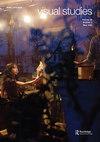竞争专制背景下的激进化:用DIY媒体可视化难民
IF 0.7
4区 社会学
0 HUMANITIES, MULTIDISCIPLINARY
引用次数: 0
摘要
摘要本文关注的是在竞争性威权体制下,视觉媒体如何与政府行为互动。我们认为,虽然难民的视觉表现通常会使主流激进化,但它在威权主义背景下获得了额外的吸引力,因为它将政治不满从政府转移到“忘恩负义”的难民身上。本文基于对土耳其和匈牙利的DIY视频的分析,这些视频与涉及难民的两个具体事件有关。现存的研究大多着眼于通过DIY媒体的在线行动主义。然而,我们从相反的角度来看待它们,并表明不仅是社会运动,而且国家也受益于DIY媒体的受众潜力,因为这些视频不再是政府宣传,而是更多地代表民意。披露声明作者未报告潜在的利益冲突。本研究得到了地平线2020框架计划[项目编号:959198,欧洲去激进化]的支持。作者简介hasret Dikici Bilgin是伊斯坦布尔比尔吉大学国际关系系政治学副教授。她关注激进化、中东政党政治和选举,以及政治伊斯兰中的阶级问题。她在这些领域的国际期刊和书籍上发表了大量文章。她最近的出版物有:“sansslman:关于土耳其政治伊斯兰教中的阶级和性别问题”(土耳其研究,2021),“重新审视空间和阶级的温和争议:突尼斯复兴党”(第三世界季刊,2021)。她与人合编了《Karşılaştırmalı siyaset: temel konular ve yaklaşımlar》一书,该书于2014年获得土耳其科学院奖。她是土耳其地平线2020项目(编号959198)的首席研究员,该项目名为“欧洲及其他地区的去激进化:发现、解决、重新整合”。Dikici Bilgin是国际政治科学协会(IPSA)的暑期学校协调员,也是土耳其政治科学协会(TPSA)的副主席。Umut Korkut是格拉斯哥喀里多尼亚大学格拉斯哥商业与社会学院国际政治学教授。他也是GCU智慧经济正义中心的成员。他担任国际政治科学协会(IPSA)副主席。科尔库特教授专门研究土耳其和匈牙利的政治,他出版了许多书籍和文章,内容涉及宗教、民族主义、性别、移民以及这些国家自由化的挑战。他有一本即将由阿姆斯特丹大学出版社编辑的书,名为《世界主义欧洲的终结?》欧洲怀疑主义、危机和边界。科尔库特教授目前领导着欧盟地平线2020资助的研究项目,欧洲及其他地区的去激进化:发现、解决、重新整合(http://dradproject.com)(2020-2023)和Demos:欧洲民粹主义的民主效率和多样性(https://demos-h2020.eu/en)(2018-2022)。Roland Fazekas是博士研究员,也是D。Rad:欧洲及其他地区的去激进化:检测、解决和重新整合”,这是格拉斯哥喀里多尼亚大学2020年EC地平线资助的研究项目。他在谢菲尔德哈勒姆大学获得犯罪学法学学士学位和应用人权法学硕士学位。本文章由计算机程序翻译,如有差异,请以英文原文为准。
Radicalisation in competitive authoritarian contexts: visualising refugees with DIY media
AbstractThis article focuses on how visual media interacts with the government practices in competitive authoritarian regimes. We argue that while the visual representation of refugees can in general mainstream radicalisation, it gains additional traction in authoritarian context as it streams political discontent away from the governments to ‘ungrateful’ refugees. The paper is built on an analysis of do-it-yourself (DIY) videos in Turkey and Hungary in relation to two specific events involving refugees. The extant research mostly looks into online activism via DIY media. However, we approach them from an opposite perspective and show that not only social movements, but also states benefit from the audience-making potential of DIY media insomuch as these videos appear less as government propaganda and more as representative of public opinion. Disclosure StatementNo potential conflict of interest was reported by the author(s).Additional informationFundingThis work was supported by Horizon 2020 Framework Programme [Project No.959198, De-radicalisation in Europe and].Notes on contributorsHasret Dikici BilginHasret Dikici Bilgin is an Associate Professor of Political Science in the Department of International Relations of Istanbul Bilgi University. She focuses on radicalisation, party politics and elections in the Middle East, and class issues in political Islam. She has published extensively in these areas in international journals and books. Her most recent publications are: ‘Süslüman: on class and gender issues in the Turkish political Islam’ (Turkish Studies, 2021), ‘Revisiting the moderation controversy with space and class: the Tunisian Ennahda’ (Third World Quarterly, 2021). She co-edited the book entitled Karşılaştırmalı siyaset: temel konular ve yaklaşımlar, which was awarded by the Turkish Academy of Sciences in 2014. She acts as the principal researcher of Turkey for the Horizon 2020 Project No.959198, De-radicalisation in Europe and beyond: detect, resolve, re-integrate. Dikici Bilgin serves as the summer schools coordinator at the International Political Science Association (IPSA) and vice-president of the Turkish Political Science Association (TPSA).Umut KorkutUmut Korkut is a Professor of International Politics at Glasgow School for Business and Society at Glasgow Caledonian University. He is also a member of the GCU Wise Centre for Economic Justice. He serves International Political Science Association (IPSA) as a Vice-President. Prof Korkut holds expertise in Turkish and Hungarian politics, and he has published numerous books and articles on issues covering religion, nationalism, gender, migration, and challenges of liberalisation in these states. He has a forthcoming edited book with Amsterdam University Press entitled The end of cosmopolitan Europe? Euroscepticism, crisis, and borders. Prof Korkut currently leads the EC Horizon 2020 funded research projects, De-radicalisation in Europe and beyond: detect, resolve, re-integrate (http://dradproject.com) (2020-2023) and Demos: democratic efficacy and varieties of populism in Europe (https://demos-h2020.eu/en) (2018-2022).Roland FazekasRoland Fazekas is a doctoral researcher and project manager for ‘D.Rad: De-radicalisation in Europe and beyond: Detect, Resolve and Reintegrate’ an EC Horizon 2020 Funded research project at Glasgow Caledonian University. He was awarded with LLB Law with Criminology and LLM Applied Human Rights degrees at Sheffield Hallam University.
求助全文
通过发布文献求助,成功后即可免费获取论文全文。
去求助
来源期刊

Visual Studies
HUMANITIES, MULTIDISCIPLINARY-
CiteScore
1.20
自引率
14.30%
发文量
61
期刊介绍:
Visual Studies is a major international peer-reviewed journal published on behalf of the International Visual Sociology Association. The journal publishes visually-oriented articles across a range of disciplines, and represents a long-standing commitment to empirical visual research, studies of visual and material culture, the development of visual research methods and the exploration of visual means of communication about social and cultural worlds. Visual Studies is a key resource for all disciplines that engage with images, society and culture, and sets the standard for the scholarly use of visual material. The multidisciplinary character of the journal is reflected in its attention to visually-based research in sociology, anthropology, cultural and media studies, documentary film and photography, information technology, education, communication studies as well as other fields concerned with image-based study. The aims of Visual Studies are to: -Provide an international forum for the development of visual research. -Promote acceptance and understanding of a wide range of methods, approaches and paradigms that constitute image-based research. -Reduce the disparity in emphasis between visual and written studies in the social sciences. -Promote an interest in developing visual research methodology in all its various forms. -Encourage research that employs a mixture of visual methods and analytical approaches within one study. -Critically reflect and contribute to the dialogue surrounding ‘the visual’ across the social sciences and humanities. -Provide an arena for in-depth exploration of various approaches, particular methods, themes and visual phenomena. Most articles published in the journal are accompanied by appropriate visual material, and the journal encourages visually-led submissions.
 求助内容:
求助内容: 应助结果提醒方式:
应助结果提醒方式:


